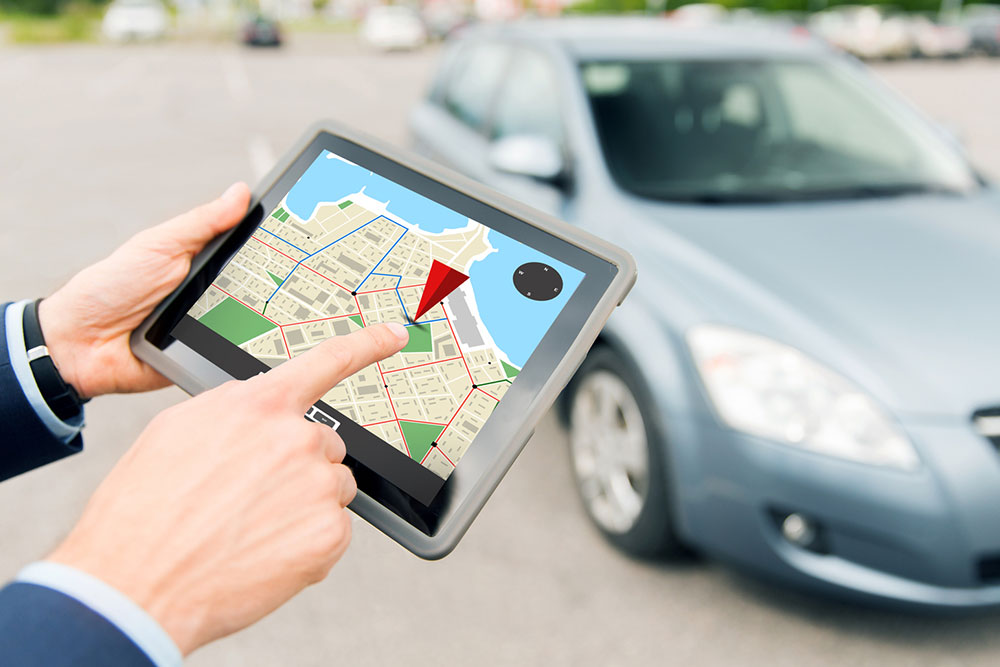
Top 7 benefits of GPS tracking
Businesses that deliver goods over large distances need to take care of many things. Fleet management, overall operational expense reduction, driver safety and security, and information provision to end customers are just some of the tasks. For that, businesses need technology that allows them to track and manage deliveries efficiently and at a low cost. This is where global positioning system (GPS) tracking comes in; it helps improve operational efficiency and maintain customer transparency.
1. Allows real-time location tracking
Businesses need to know the exact location of delivery vehicles and assets. Real-time location tracking lets them know where their delivery vehicles are at all times. This information allows them to take corrective action or send help if something goes awry during the delivery process.
Besides knowing the real-time whereabouts of their goods, GPS tracking provides businesses with the estimated time of arrival (ETA) of their goods to a particular location. They can share this real-time ETA information, including any changes in the delivery time, with their clients or end customers.
2. Reduces fuel expenditure
Modern GPS tracking uses satellite technology and machine learning to calculate the shortest route to a destination. This particular aspect of these systems is built to reduce fuel consumption, as fuel costs make up a large part of any organization’s yearly budget. So, businesses have to try and test out various techniques, strategies, and gadgets to keep fuel expenses to a minimum. Here, GPS tracking enables fleet managers to identify vehicle driving patterns. Issues like unnecessary pitstops, abrupt acceleration, speeding when it is not necessary, and taking long routes to a given destination diminish the fuel efficiency of delivery vehicles. GPS tracking allows business managers to monitor and regulate these aspects.
3. Lowers operational costs
The prime value proposition of GPS tracking is how it helps companies be prudent, make informed decisions, and lower operational expenses. These systems record and show data related to delivery problems. The immediate availability of information allows companies to identify and resolve such issues swiftly and, by extension, prevent potential long-term costs.
GPS tracking systems come with built-in features that facilitate digital transactions and ensure efficient data collection and storage for future reference. The tracking systems also allow businesses to centralize pre-trip inspections, delivery confirmations, and task assignments, greatly reducing the need for additional workforce and operational costs.
4. Ensures driver safety and security
GPS tracking systems come with real-time monitoring capabilities, allowing warehouse managers and business owners to know whether the driver and delivery coordinator are safe. Besides, they can relay information to the management through GPS tracking systems if they encounter any problems while delivering the goods. Once management receives the information, it can take action to protect its employees. This makes it easier for businesses to ensure the safety and security of their delivery workforce.
5. Improves route planning
GPS tracking systems are built to help users save time and money. Fleet managers use these tools to plan the most efficient and mileage-saving route for their delivery trucks and vessels. Customers want their product orders to be delivered in as little time as possible, which is only likely if the overall lead time of delivery is minimized. GPS tracking ensures that through its route optimization feature.
A unique aspect of these systems is how they recommend alternative routes to fleet managers and drivers in case of road closures, traffic jams, or accidents. In that way, these systems increase driver productivity and customer satisfaction by minimizing delivery times.
6. Identifies unwanted behavior
Sometimes, delivery truck drivers may use the company vehicle to do quick side jobs and earn extra money. While that might be fine for the driver, it delays deliveries and hinders organizations’ business operations. GPS records every pitstop a driver makes, monitors the vehicles when drivers take them home, and tracks lunch breaks taken by the delivery staff. All these features help businesses identify unusual or unwanted behavior.
7. Improves customer service
GPS tracking ensures customers get their packages in time by speeding up deliveries and reducing the lead time of logistics operations. Today, with the help of digital devices, customers do not have to wait a long time for their orders to be delivered by retail companies. Additionally, they can track their orders and be informed if there are any changes in their estimated time of arrival.



